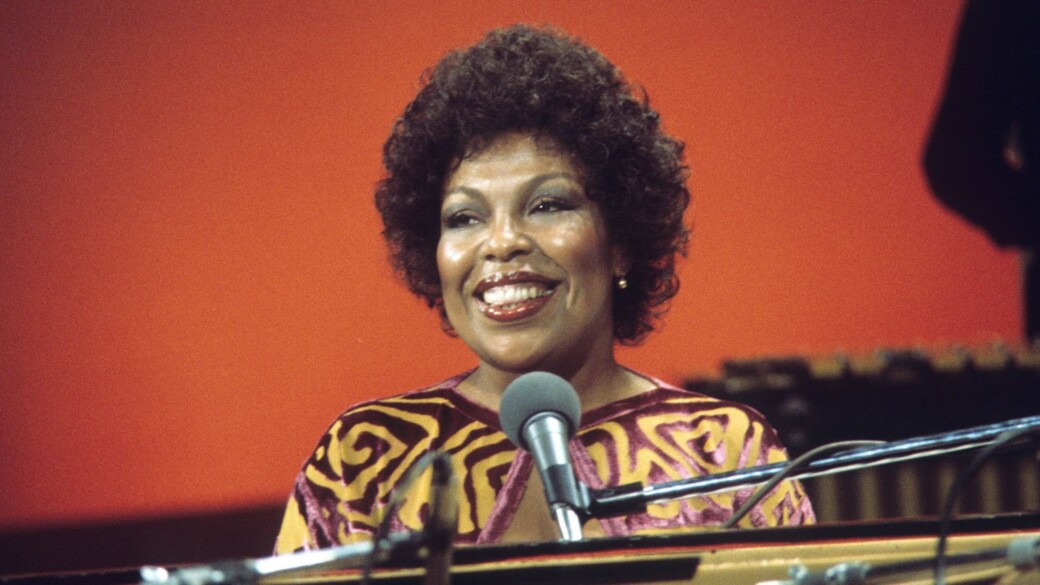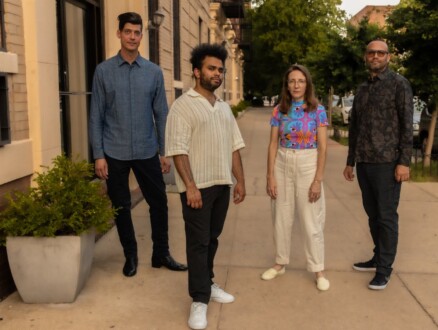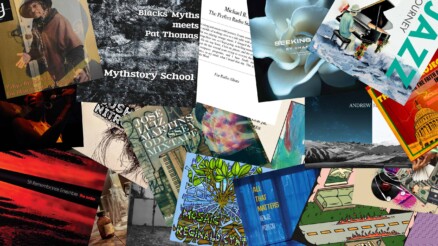Roberta Flack’s D.C. legacy

Before Roberta Flack became an internationally renowned, chart-topping music icon, she was already making indelible footprints in Washington, D.C., both as a public-school choir teacher and an aspiring singer and pianist. It was in D.C.’s classrooms and especially its small nightclubs that Flack — who died in February at 88 — established the disarmingly personal style of singing that would make her a star.
In the late 1960s, she taught at Louis Charles Rabaut Junior High School. There, one of her homeroom students was an eighth grader named Davey Yarborough, who later became one of D.C.’s finest jazz saxophonists, educators and mentors. Yarborough remembers that as a teenager, he abruptly quit the school band because the new band director wasn’t teaching music class in the same manner as his predecessor.
In a huff, Yarborough left band class and went to his homeroom. Flack noticed the distraught student and consoled him. More importantly, though, she confronted him.
“Roberta Flack asked me, ‘Do you really want to be a musician? Then why are you going to let this guy [dissuade you]? You got a year to work with him, then you don’t have to see him again. Why are you going to let him stop you from making progress as a musician?’” Yarborough recalled.
Without Roberta Flack’s encouragement, it seems possible that arguably D.C.’s most beloved jazz educator might never have made it to where he is today.
Flack taught music at D.C. schools, as well as being a homeroom teacher – always with an emphasis on accessibility. “I taught them Beatles songs, Ray Charles, Jackson 5 — everything that I can think of,” Flack says in the 2023 PBS American Masters documentary Roberta Flack. “We learn the songs when we learn the notes.”
When she wasn’t teaching junior high school, Flack was performing regularly in D.C. at Georgetown’s Tivoli Opera Restaurant and Mr. Henry’s on Capitol Hill. At the former, she accompanied opera singers on piano, then sang popular tunes in between sets. Later, Mr. Henry’s owner Henry Yaffe remodeled its upstairs space to serve as a jazz venue specifically so that Flack could become the artist-in-residence there. It was at Mr. Henry’s that she became a major local attraction, singing and leading a band multiple nights a week.
There, she caught the attention of jazz pianist and singer Les McCann, who was a prominent artist on Atlantic Records at the time. Mesmerized by her poised confidence and magnetism, McCann encouraged Joel Dorn at Atlantic to sign her. Dorn then invited Flack to New York City to record some demo tracks.
By now she had been playing at Mr. Henry’s for years, and she had amassed a repertoire of hundreds of popular songs, jazz pieces and folk tunes. She and her regular trio — Marshall Hawkins on bass and Bernard Sweeney on drums — traveled to New York in November 1968 to audition for Dorn. Over three hours, they breezed through 40 songs from their Mr. Henry’s repertoire. Dorn signed Flack immediately, and the next year Atlantic released her debut album, First Take.
With its intriguing program of R&B-based protest songs (Eugene McDaniels’s “Compared to What” and Donny Hathaway and Leroy Hutson’s “Tryin’ Times”) alongside an alluring gospel hymn (“I Told Jesus”), a somber off-Broadway ballad (Frances Landesman and Thomas J. Wolf Jr.’s “Ballad of the Sad Young Men”) and a soul-stirring Venezuelan tune (Manuel Álvarez Maciste’s “Angelitos Negros”), First Take confounded some expectations of what a debut album from a Black American soul singer should sound like, especially a woman.
While Flack’s genius made perfect sense to the D.C. audiences that loved her, it took a while for her to catch on elsewhere. “For months, mention of her name has inevitably raised the question, ‘When’s Roberta going to make it nationally?’” wrote Jack Rosenthal, a reporter based in D.C.
Still, the singer reigned supreme in the District. As the New York Times wrote playfully in 1970, “Next to the Capitol dome, her Afro’s the best-known hemisphere in Washington.”
First Take and the two Atlantic albums that followed it were initially commercial sleepers — until Clint Eastwood heard Flack’s enchanting rendition of Ewan MacColl’s “The First Time Ever I Saw Your Face.” After hearing it on the radio while driving on the Los Angeles freeway, Eastwood called Dorn to ask if he could use it in his directorial film debut, Play Misty for Me. The actor paid for the rights and used the song in the movie. Afterward, “The First Time Ever I Saw Your Face” blew up, topping the Billboard pop chart in 1972 and earning Flack a Grammy for Record of the Year.
From then on, she was a superstar.
However, even after she moved to New York, the nation’s capital was proud to claim her as its own. Jacqueline Prescott set the record straight in a 1977 Washington Post profile: “In the late ’60s and early ’70s, the Roberta Flack explosion was a Washington-made phenomenon,” she wrote. “The town was her musical launching pad and it claimed the former local schoolteacher and upstairs pub musician as its own, even though she was born in Black Mountain, N.C. In her music she symbolized many trends of those evolving times, from the forthright message of black consciousness through the search for introspection.”
Even today, Flack’s artistry embodies an eternal spirit that continues to touch multiple generations of listeners. And it will always hold a special place in the hearts of those who remember her days in D.C.
When I played, that’s when I felt the presence of God.
Born Roberta Cleopatra Flack on Feb. 10, 1937, in Black Mountain, N.C., she mapped a musical trajectory similar to that of Nina Simone, who’d been born just four years earlier in nearby Tryon, N.C.: Both were child prodigies with early aspirations of becoming European classical concert pianists.
Flack grew up in a musical family, which relocated when she was young to Richmond, Va., then later to Arlington. Her mother, Irene Flack, played organ at Arlington’s Lomax African Methodist Episcopal Zion Church. A young Roberta soaked up the music of the church as well as European classical music.
“When I played, that’s when I felt the presence of God,” Flack says in the PBS documentary. “And I felt very grown-up. That stayed with me for a very, very long time.”
Flack’s preternatural musical talents earned her a full scholarship at Howard University, where she enrolled at just 15. For a young Flack, navigating campus life and city living was a sometimes-jarring experience. Nevertheless, she excelled. “I learned that the world was bigger than I imagined,” she later recalled.
While attending Howard, she met the musician who would become one of her greatest co-conspirators: Donny Hathaway. Both exhibited the same expansive musical scope and soulful erudition. As a duo, Flack and Hathaway released some of R&B’s most enduring classics, such as 1972’s Grammy-winning “Where Is The Love” and 1978’s “The Closer I Get to You.” The pair released two cherished albums, Roberta Flack & Donny Hathaway (1972) and Roberta Flack Featuring Donny Hathaway (1980), released after Hathaway’s tragic death at 33.
Flack’s dean at Howard encouraged her to have a backup plan for her career, because she understood how cutthroat the music industry could be for hopeful concert pianists, especially for Black ones. Flack took her teacher’s sage advice to consider a music teaching career and pursued a master’s degree at Howard in music education. But after her father passed away, she dropped out to start working.
She taught English and music at a grade school in Farmville, N.C., before returning to D.C. a year later to teach in the city’s public schools. It was then that Flack’s singing began blossoming.
“My voice is a gift,” Flack says in the PBS documentary. “For years, I wanted to be a concert pianist. And I practiced, and I practiced. And that’s a very important foundation. So, when I got to a point in my life where I could sing, I did not have a style — I just had a voice. I think when you tell the truth, you don’t have to necessarily scream it, as long as it is direct… and honest.”
Indeed, Flack possessed a clarion mezzo-soprano voice that defied easy categorization, powered with a flickering seduction which allowed her to imbue her lyrics with enormous emotion, clarity and poise. She was a masterful interpreter of songs with the ability to reconstruct them into her makings without destroying their original thematic intents.
She was also a trailblazer in becoming one of the few women to produce her own albums. On her fifth album, Feel Like Makin’ Love (1975), she assumed production duties, using the alter-ego Rubina Flake. The title track topped the Billboard Hot 100, her third track in as many years to top the chart. The album reached No. 5 among Billboard’s Top Soul Albums.
“When you assert your own ability to make a final decision, you are, of course, categorized,” she says in the documentary. “In most instances, you’re called, very simply, a bitch. As a Black woman, it goes a step further even. To actually get back there and push the buttons on the console, make the decisions, to tell men what to do takes a lot of courage. I think, in that sense, I probably paved some inroads for other women to do what I have done.”
She continued co-producing cherished albums such as Blue Lights in the Basement (1977), Roberta Flack (1978), her 1980 collaboration with Hathaway, the soundtrack to the 1981 film Bustin’ Loose and others.
Throughout her career, Flack was a champion of both racial equality and LGBTQ rights. And she played benefit concerts often for organizations fighting childhood hunger, poverty, animal cruelty and other ills. Flack was married twice, first to D.C.-based bassist Steve Novosel and later to film producer Stewart Bosley (both marriages ended in divorce). Although she had no biological children, she was the godmother of the famed jazz-funk keyboardist and singer, Bernard Wright, who died in 2022.





